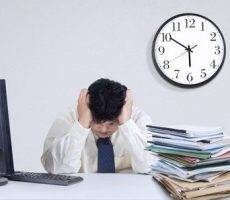October 11, 2016
Home workers take fewer sick days than office based colleagues 0
 Working from home has long been branded ‘shirking from home’ but a new survey suggests that home workers actually take fewer sick days. The research by CartridgePeople.com and published in the SOHO (Small Office/Home Office) Workers Report, found that home workers are not only happier but they are also healthier than their workplace-based counterparts – taking an average of 2.4 sick days per year, in comparison to the 2.6 taken by those working from company premises. Of course, that doesn’t tell us if they are in fact healthier, or that they’re more prepared to carry out their work duties from the comfort of their bed. But the survey of 1,096 British workers, including both home workers and those who work from their employers’ premises, also revealed that the majority of workers (60 percent) did feel happier when working from home.
Working from home has long been branded ‘shirking from home’ but a new survey suggests that home workers actually take fewer sick days. The research by CartridgePeople.com and published in the SOHO (Small Office/Home Office) Workers Report, found that home workers are not only happier but they are also healthier than their workplace-based counterparts – taking an average of 2.4 sick days per year, in comparison to the 2.6 taken by those working from company premises. Of course, that doesn’t tell us if they are in fact healthier, or that they’re more prepared to carry out their work duties from the comfort of their bed. But the survey of 1,096 British workers, including both home workers and those who work from their employers’ premises, also revealed that the majority of workers (60 percent) did feel happier when working from home.



































October 7, 2016
Are we seeing the workification of home or the homification of work? 0
by Anna King • Comment, Flexible working, Workplace design
More →